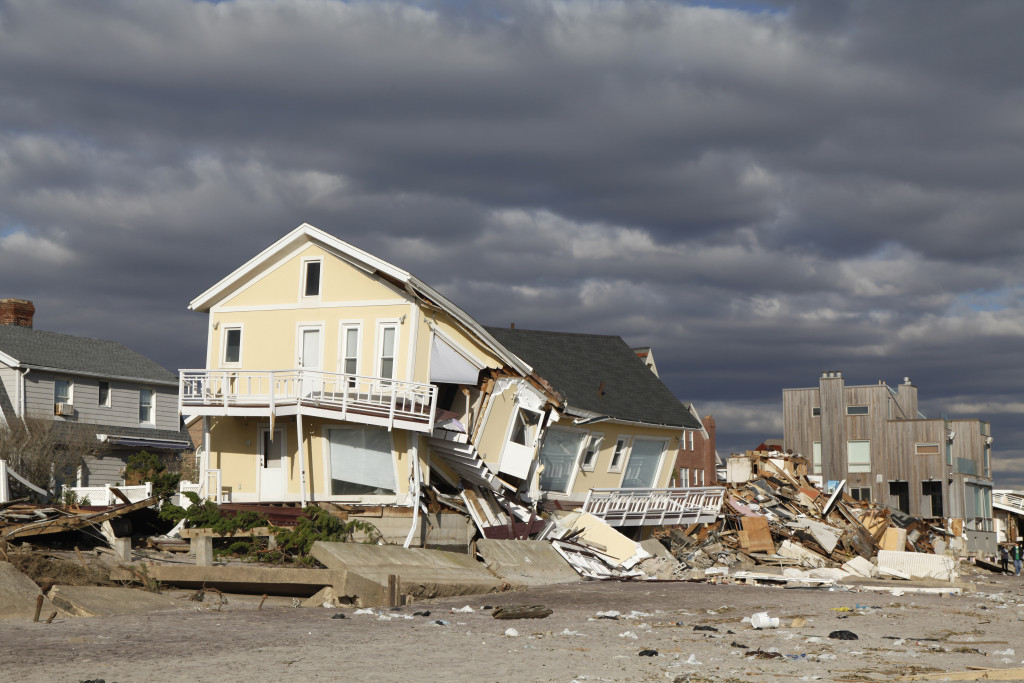- Assess the damage to the roof, siding, windows, and other areas of the home.
- Prioritize fixing the roof as soon as possible and check for underlying issues.
- Reinforce walls and roofs by installing hurricane strapping or clips, and make sure the shingles or tiles are securely fastened.
- Install hurricane-resistant windows for protection from wind and torrential rain.
- Hire professionals, such as roofing contractors and structural engineers, to fix the damage correctly.
Hurricanes are not only a weather phenomenon but also a devastating force of nature that can leave your home in dire condition. The high winds, hail, and floods of a hurricane can cause damage to the roof, windows, walls, and everything in between. If you are a homeowner who has just gone through a hurricane, you might be wondering what to do next. Here are some tips that you can do to fix your home after the storm.
Assess The Damage
The first thing you need to do when dealing with hurricane damage is to assess the damage. Check the roof, siding, windows, and any other areas of your home that might have sustained damage.
If you see any cracks, holes, or damage, make a note of it. You will need to keep this information handy when you file an insurance claim or hire a contractor to fix the damage.
If possible, take pictures or videos of the damage. This will help you when filing for insurance reimbursement and can also be used to show potential contractors the areas that need repair.
Prioritize The Roof
The roof is one of the most vulnerable parts of your home during a hurricane. Strong winds can cause shingles or tiles to be ripped off, and even heavy rain can cause water to seep through, leading to potential leaks and further damage.
To prevent further harm, it is crucial to prioritize fixing the roof as soon as possible. If your shingles or tiles need replacing, find an efficient roofing installation contractor to ensure they are correctly done and will last for years.
Furthermore, check for any underlying issues, such as leaks or structural damage that may not be visible on the surface. This can help you avoid significant problems in the future.

Reinforce Your Home
If you live in an area that is prone to hurricanes, you might want to consider reinforcing your home. While this may cost more upfront, it could save you a lot of money and hassle in the long run. Here are some things to consider:
Hurricane-Resistant Windows
Hurricane-resistant windows are essential for protecting your home from a hurricane’s high winds and torrential rains. These windows are designed with a stronger outer layer that can withstand high winds and an inner layer of thicker glass. They also have reinforced frames that can withstand intense storms. By installing hurricane-resistant windows, you can protect your home from further damage.
Reinforced Walls and Roofs
You can also reinforce the walls and roofs of your home by installing hurricane strapping or clips. These metal braces help tie together the roof trusses, rafters, and walls, making them less likely to be damaged in a storm. You should also make sure that the shingles or tiles on your roof are securely fastened.
Storm Doors
Storm doors are an effective way to protect your home during a hurricane. These doors feature reinforced frames and heavy-duty hardware that can hold up against high winds and other debris. Additionally, storm doors come with a mesh or glass insert that acts as a barrier against rain and other elements while also allowing for ventilation.
Backup Generator
Having a backup generator is an important step to take when preparing for hurricane season. Not only does it provide reliable power in the event of an outage, but it can also be used to protect your home from the strong winds and flooding that come with a hurricane. Backup generators come in various sizes and features, so it’s essential to choose one that is right for your home.

Hire Professionals
After a hurricane, you might be tempted to fix everything yourself. However, this is not always the best idea.
Fixing hurricane damage requires professional expertise that you might not have. For example, if you are dealing with roof damage, it’s vital to hire a roofing contractor who can correctly install shingles or tiles and ensure that the job is done correctly.
In some cases, you may also need to hire a structural engineer to check for any underlying issues with the foundation or walls of your home.
Dealing with hurricane damage can be overwhelming, but it doesn’t have to be. Assess the damage, document everything, hire professionals, reinforce your home, and be prepared. By following these steps, you can fix your home after the storm and prevent damage from future hurricanes. Don’t forget that safety should always be your top priority, so always take any necessary precautions before starting any repair work.
